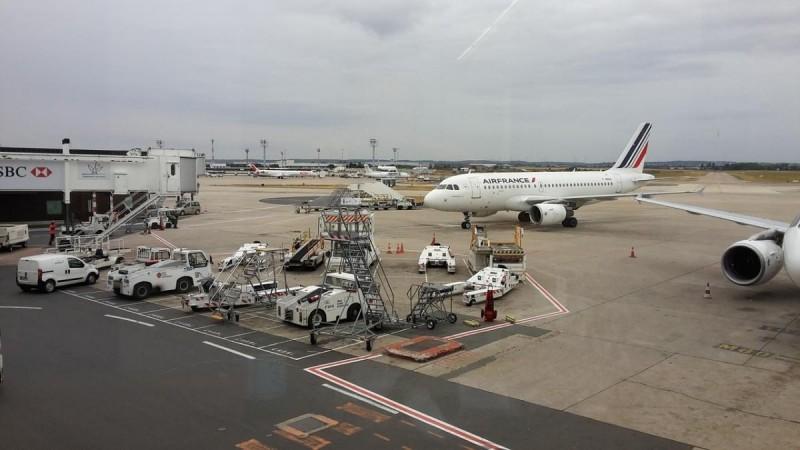The Air Navigation Services provider certificate issued by the Director-General of Civil Aviation (DGCA) to Airports Authority of India (AAI) certifying the GPS-Aided GEO Augmented Navigation (GAGAN) system for a period of 60 months (five years) from the date of issue being April 21, 2015 is about to lapse soon.
The certificate authorizing the holder AAI, to provide the facility to operate as navigational aids to support air traffic services for all users on equal terms and conditions is on the verge of expiry. This certificate will be suspended, modified or withdrawn in case of any violations of the provisions of the Aircraft Act, 1934 and the Aircraft rules, 1937.

In 2019, the ministry of Civil aviation postponed the requirement for aircraft registered in India to be equipped with GPS Aided Geo Augmented Navigation system (GAGAN) compatible avionics from January 2019 mandated earlier to June 30, 2020. "All the aircraft being imported for registration on or after 30.06.2020 shall be required to be suitably equipped with GAGAN equipment," the public notice published by the Director General of Civil Aviation (DGCA) said.
What is GAGAN and how does it help?
GAGAN stands for GPS Aided GEO Augmented Navigation system. It is a system of satellites and ground stations that provides GPS signals to provide better position accuracy. GAGAN is a Space-Based Augmentation System (SBAS) jointly developed by ISRO and AAI to provide the best possible navigational services over Indian FIR (Flight Information Region) with the capability of expanding to neighboring FIRs.
With the certification of GAGAN for approach and landing operations (APV 1) on 21st April 2015, India has become the third country in the world to have such capabilities. GAGAN is the first system in the world to have implemented in the equatorial Ionospheric region. The GAGAN system is designed to help pilots navigate successfully under all-weather conditions by the accuracy of up to three meters, this capability would enable aircraft landing even on tough terrain and extreme weather. It will allow an aircraft to reduce fuel burn by flying on a specific path on straight routes and between two three-dimensional defined points.

To provide better position accuracy, the GAGAN system corrects itself for GPS signal errors caused by ionospheric disturbances, timing and satellite orbit errors and also it provides vital information regarding the health of each satellite. The GAGAN system offers services to aviation, railways signalling, location-based services, scientific research for atmospheric studies, mobile and tourism.
As mentioned on the portal, currently two GEOs simultaneously transmit the GAGAN signal in space. The footprint of GAGAN GEO expands from Africa to Australia. The system has the capability to serve 45 reference stations for expansion to neighboring countries.
GAGAN's civil aeronautical navigation signal is consistent with the International Civil Aviation Organization (ICAO) Standards and Recommended Practices (SARPs) as established by the Global Navigation Satellite System (GNSS) Panel.
What will happen if the DGCA certificate expires?
The Director-General of Civil Aviation (DGCA) formed a Technical Review Team (TRT) to examine specific safety-related artifacts and hazard records and to provide recommendations for resolving any observed issues. Initially, the DGCA certified GAGAN for en route operations (RNP 0.1) on December 30, 2013, and subsequently on April 21, 2015, for precision approach services (APV 1). APV1-certified GAGAN signals are being broadcast since May 19, 2015, according to the website.
If the DGCA certification expires, amid the coronavirus outbreak exemptions from the aviation controller can be availed by AAI. However, without accurate GPS signaling provided by GAGAN system, it will be difficult for pilots to take off flights on rough terrain and bad weather conditions.
COVID-19 outbreak: Renewal of license exemptions by DGCA
Owing to sudden COVID-19 outbreak disrupting businesses and impacting economies globally, the DGCA had earlier announced on April 3, about the challenges faced by airline operators for the continuation of the validity of approvals issued under Rules 133B and 133BA and licenses issued under Rule 61 of the Aircraft Rules, 1937.

Recognizing the difficulties faced by the aviation sector and the professionals during these crisis times, DGCA has issued some exemptions for Indian organizations approved under rule 133B of the Aircraft Rules, 1937, who have expired or are expiring after March 22, will be extended until July 3, 2020. However, the validity of approvals issued to foreign organizations under Rule 133B who have expired or are expiring after March 22, will be extended only till September 30, 2020
The validity of approvals issued to organizations issued under Rule 133BA of the Aircraft Rules, 1937 that have expired or are expiring after March 22 will be extended till September 30, 2020
Also, licenses and authorizations issued to Aircraft Maintenance personnel under Rule 61 of the Aircraft Rules, 1937 who have expired or are expiring after March 22, will be extended until July 3, 2020.
Further, the validity of continuation training requirements as required for the extension of company authorization under CAR 145 is extended for a period of three months i.e. till July 3, 2020.
As per the announcement, the time required for completion of type training including OJT for the purpose of issue/ extension of AME license as required under CAR66 (Appendix III of CAR 66) for those candidates, who have commenced their type training course on or after March 23, 2017, is extended by a period of six months.
Considering the Covid-19 outbreak has impacted workings of the aviation sector to hurt profits and impede growth in 2020-21, will individual airlines be exerting their freedom to assess if to invest or not, and deploy an SBAS-based GAGAN system depending on their operational needs or identify a strong business case to justify their investment? Do these current times signal perhaps a GAGAN deployment mandate extension for aircrafts registered in India once again?








